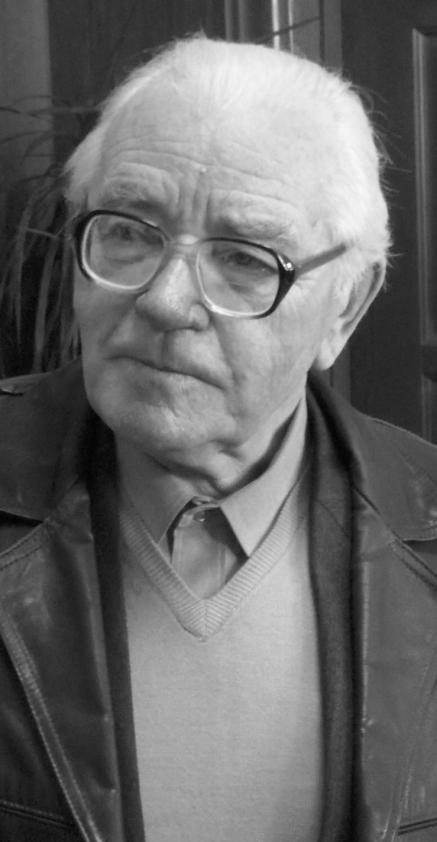European Memories
of the Gulag
BioGraphy
Kasimirs GENDELS
Kasimirs Gendels was born to a multilingual family and community in Latgale, Latvia, in 1934. He was deported with his father and sister in 1949 as part of the mass deportation at the time the Latvian countryside was collectivised: his father was considered to be a kulak, and, worse still, his brother had been called up into the German army during the war.
In Siberia, he worked in a forest kolkhoz in the taiga: sawing, loading barges, etc. After making several pleas to Nikita Khrushchev, Kasimirs Gendels was released in 1955. On his return to Latvia, he did his military service and became a mechanic.
Every three or four years he went back to Siberia to see the grave of his father, who died there. After Latvia’s independence, he made one last trip to Siberia and smuggled the body back home.
The interview with Kasimirs Gendels was conducted in 2009 by Juliette Denis and Alain Blum.
-
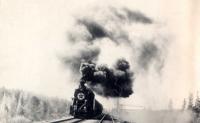 Guessing the final destination
Guessing the final destination
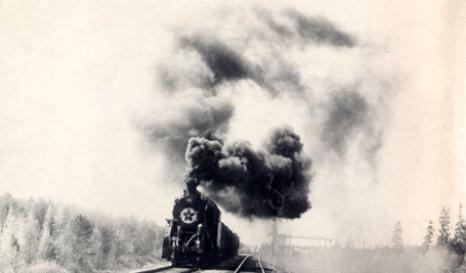
Source: Interview conducted in Latvia by J. Denis & A. Blum, 13/01/2009.
Licence CC BY-NC-ND.
CloseGuessing the final destination
After miraculously finding his father again before getting into the wagon, Kasimir Gendels and his family were sent to the East with other deportees. With no information about the final destination, the group of deportees attempted to find out where they were from the successive directions the train took: northwards – were we going to the dreadful mines in the Great North? Southwards – would it be Kazakhstan?
-
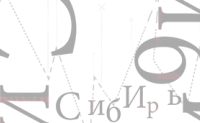 The soldiers’ surveillance relaxes
The soldiers’ surveillance relaxes
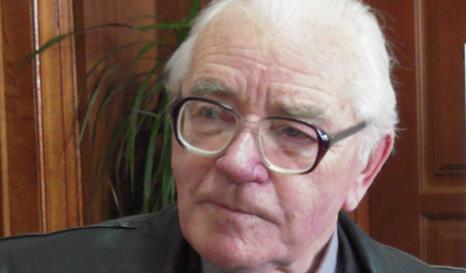
Source: Interview conducted in Latvia by J. Denis & A. Blum, 13/01/2009.
Licence CC BY-NC-ND.
CloseThe soldiers’ surveillance relaxes
Once through the Urals, the soldiers stopped bothering to keep a close eye on the train that Kasimir Gendels and his family were travelling on – where could they escape to?
-
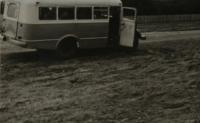 Siberian village
Siberian village
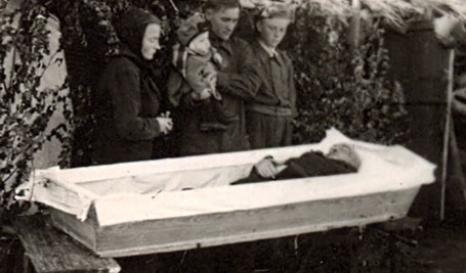
Funeral of Kasimirs Gendels’s father (Photograph, Anonymous, 21.05.1951). Source: Kasimir Gendels's Personal archive.
Media subject to copyright.
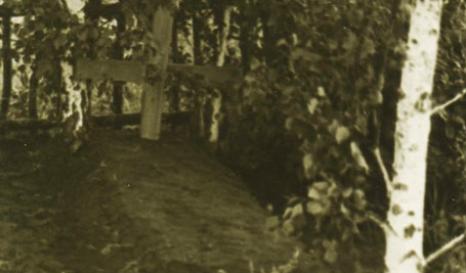
Tomb of Kazimir Gendels' father, Tchapaevo (Siberia,Tomsk region), restored by the latter (Photograph, Kazimir Gendels, 1967). Source: Kasimir Gendels's Personal archive.
Media subject to copyright.
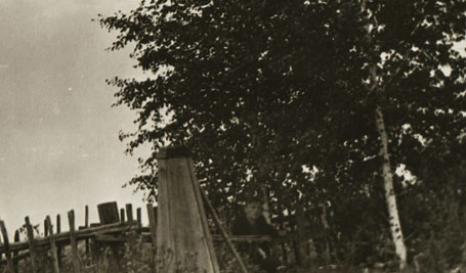
Tomb of Kazimir Gendels' father, Tchapaevo, Tomsk region, restored by the latter (Photograph, Kazimir Gendels, 1967). Source: Kasimir Gendels's Personal archive.
Media subject to copyright.
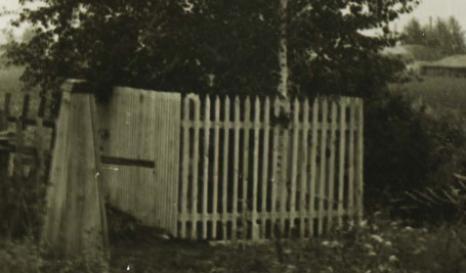
Tomb of Kazimir Gendels' father, Tchapaevo, Tomsk region, restored by the latter (Photograph, Kazimir Gendels, 1967). Source: Kasimir Gendels's Personal archive.
Media subject to copyright.
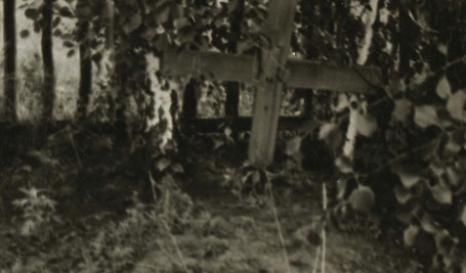
Tomb of Kazimir Gendels' father, Tchapaevo, Tomsk region, restored by the latter (Photograph, Kazimir Gendels, 1967). Source: Kasimir Gendels's Personal archive.
Media subject to copyright.
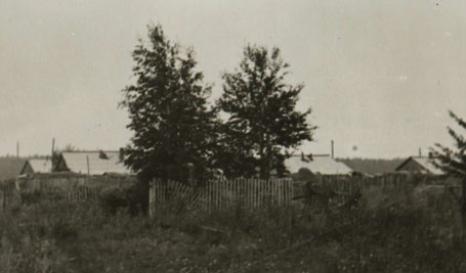
View of the village of Tchapaevo (Sovkhoze of Kolosovka, Tomsk region) during a visit of Kazimir Gendels in his deportation village (Photograph, Kazimir Gendels, 1967). Source: Kasimir Gendels's Personal archive.
Media subject to copyright.
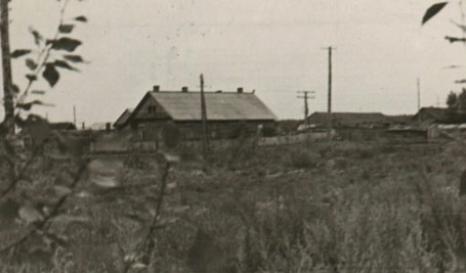
View of the village of Tchapaevo (Sovkhoze of Kolosovka, Tomsk region) during a visit of Kazimir Gendels in his deportation village. (Photograph, Kazimir Gendels, 1967). Source: Kasimir Gendels's Personal archive.
Media subject to copyright.
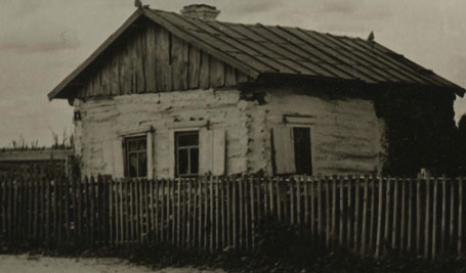
Isba in the village of Tchapaevo (Tomsk region), during a visit of Kazimir Gendels in the village where he had been relegated (Photograph, Kazimir Gendels, 1967). Source: Kasimir Gendels's Personal archive.
Media subject to copyright.
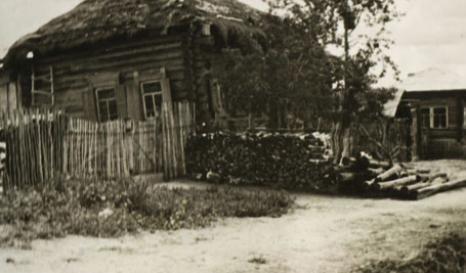
Isba in the village of Tchapaevo (Tomsk region), during a visit of Kazimir Gendels in the village where he had been relegated (Photograph, Kazimir Gendels, 1967). Source: Kasimir Gendels's Personal archive.
Media subject to copyright.
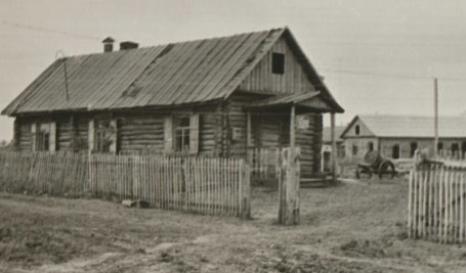
Isba in the village of Tchapaevo (Tomsk region), during a visit of Kazimir Gendels in the village where he had been relegated (Photograph, Kazimir Gendels, 1967). Source: Kasimir Gendels's Personal archive.
Media subject to copyright.
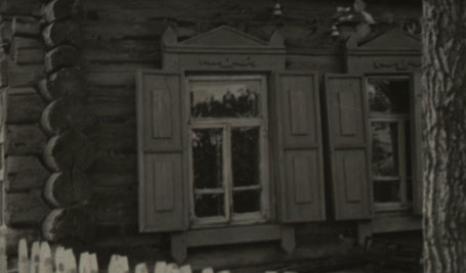
Detail of an isba (village of Tchapaevo, sovkhoze of Kolosovka, Omsk region) during a visit of Kazimir Gendels in the village where he had been relegated (Photograph, Kazimir Gendels, 1967). Source: Kasimir Gendels's Personal archive.
Media subject to copyright.
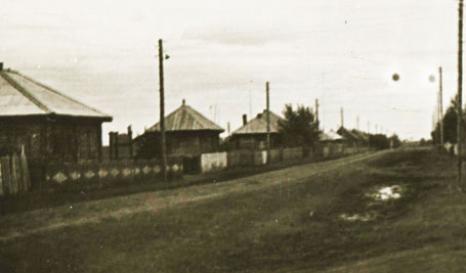
The main street of the village of Tchapaevo (sovkhoze of Kolosovka, Omsk region) during a visit of Kazimir Gendels in the village where he had been relegated (Photograph, Kazimir Gendels, 1967). Source: Kasimir Gendels's Personal archive.
Media subject to copyright.
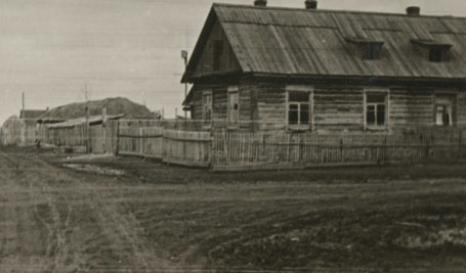
Street and crossroads. Tchapaevo village, sovkhoze of Kolosovka, Tomsk region, during a visit of Kazimir Gendels in the village where he had been relegated (Photograph, Kazimir Gendels, 1967). Source: Kasimir Gendels's Personal archive.
Media subject to copyright.
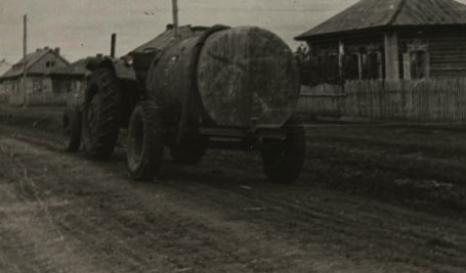
Street and crossroads. Tchapaevo village, sovkhoze of Kolosovka, Tomsk region, during a visit of Kazimir Gendels in the village where he had been relegated (Photograph, Kazimir Gendels, 1967). Source: Kasimir Gendels's Personal archive.
Media subject to copyright.
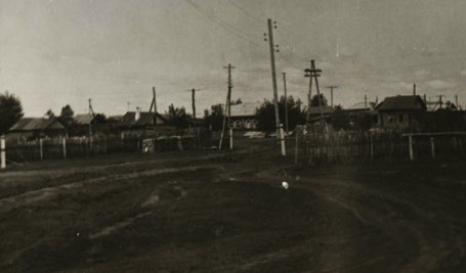
The electrification of Siberia. Tchapaevo village, sovkhoze of Kolosovka, Tomsk region, during a visit of Kazimir Gendels in the village where he had been relegated (Photograph, Kazimir Gendels, 1967). Source: Kasimir Gendels's Personal archive.
Media subject to copyright.
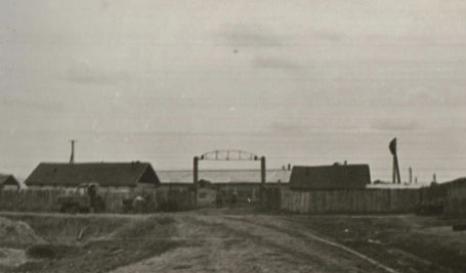
The entrance of the machine and tractor station of the kolkhoz (village of Tchapaevo, Sovkhoze of Kolosovka, Tomsk region), during a visit of Kazimir Gendels in the village where he had been relegated (Photograph, Kazimir Gendels, 1967). Source: Kasimir Gendels's Personal archive.
Media subject to copyright.
CloseSiberian village
Kasimirs Gendels, during his deportation and even more during the trips he made to Siberia after his release, took many photos of his village and the Siberian landscape. His frequent visits to Siberia were mainly to visit the grave of his father, who had died in deportation. They were also a chance to return to the places he knew from his deportation – his village, his house, nature and the forest.
-
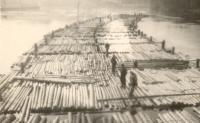 Loading barges and the mark of the taiga
Loading barges and the mark of the taiga
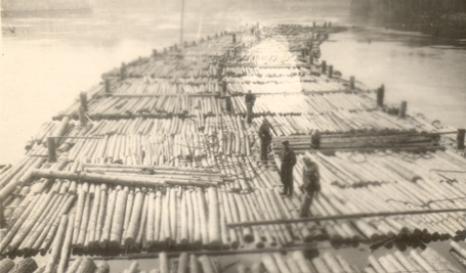
Source: Interview conducted in Latvia by J. Denis & A. Blum, 13/01/2009.
Licence CC BY-NC-ND.
CloseLoading barges and the mark of the taiga
Kasimir Gendels, given the job of loading barges, was deeply affected by the taiga, which left its mark on him long after his liberation.
-
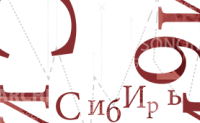 Local and deportees helping each other
Local and deportees helping each other
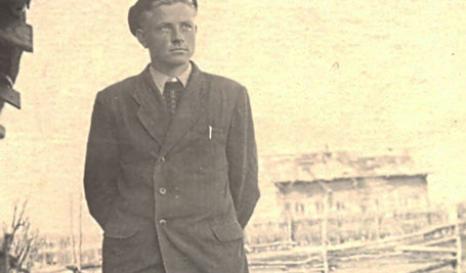
Source: Interview conducted in Latvia by J. Denis & A. Blum, 13/01/2009.
Licence CC BY-NC-ND.
CloseLocal and deportees helping each other
Kasimirs Gendels remembers the solidarity there was in that Siberian rural community.
-
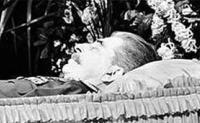 The death of Stalin
The death of Stalin
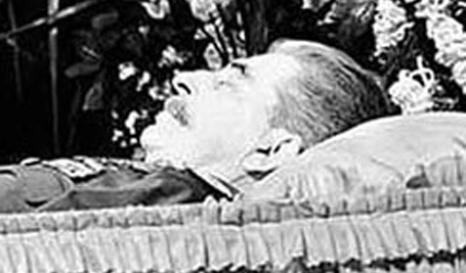
Source: Interview conducted in Latvia by J. Denis & A. Blum, 13/01/2009.
Licence CC BY-NC-ND.
CloseThe death of Stalin
The death of Stalin, and especially its announcement, remains an extremely clear event in Kasimirs Gendels’s memory, even if in practice the dictator’s death did not bring any immediate radical changes; liberation came later.


